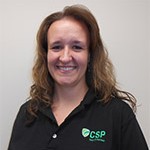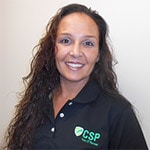1310 Nowell Road
Raleigh, NC 27607
1310 Nowell Road
Raleigh, NC 27607
Existing CSP Client: (919) 424-2060
SALES: (919) 420-3231

From the word go, the term communication indicates that there is more than one party involved in the conversation. For there to be effective communication, both parties must understand what the other is saying. Communication in business is somewhat different from casual communication, say among friends. In business, the stakes are higher. Much more is involved and there is much more to lose, therefore, it is important that the communication is as effective as possible.

There are certain rules that need to be followed for communication to be effective. These have been summarized as the 7C’s and are believed to guide communication especially in business. The 7C’s of communication is meant to inform people who do not know much about the rules of communication. Below, we discuss the 7C’s of good business communications.
First of all, communication needs to be concise. Conciseness simply means that you get to the point. Communication in business that does not convey to the other party exactly what the person is saying can be frustrating. It not only wastes time but can also lead to mistakes when the information conveyed is not understood. For this purpose, it is important that the message is conveyed in a concise manner. Of course, don’t be abrupt or rude, but be sure that you make your point. In today’s fast-moving world, business people appreciate it when you say what you mean and don’t leave listeners wondering.
The message communicated needs to be complete. Do not assume that the person you are talking to will fill in the blanks or read between the lines. Ensure that before the conversation comes to an end, the person you are talking to has understood you completely. It is common knowledge that different people react in various ways to information that is presented to them. In addition, each person’s level and speed of understanding varies. Leaving people to complete information for themselves opens up the material being conveyed to misinterpretation. Depending on the level of communication, mistakes that arise as a result of incomplete information being passed can end up being quite costly to the business.
Always remember that clarity is key. Imagine a situation in which you need an employee to make certain purchases for your business. You give the employee the instructions, focusing mainly on the exact items to be purchased, the quantities needed, and the budget. The employee when making the purchases, however, ends up purchasing the wrong items or the wrong quantity. Can you imagine the impact that this would have on your business? This is just one of the reasons why there needs to be clarity on the information being passed. Say exactly what you mean, exactly how you mean it.
Keep in mind, whenever you are communicating with someone else that the other party is a human being with needs, feelings, life experiences, and certain biases. Knowing your audience is important if you are going to communicate effectively. Whether you know your audience or not, however, strive to be thoughtful in all your communications. Consider the other person’s feelings, their beliefs, their culture, and their biases. This can ensure that the message you are conveying is not received in a negative light. If possible, ensure that the message resonates well with your client.
Correctness means that the message you are delivering must be accurate. Do not rely on fake news sources, for example, to inform the information passed. Instead, verify the facts before communicating with others. This will maintain your credibility with the other party and increase their trust in you. Secondly, the correctness of information reduces the chance of misleading information being passed on to others. This, in turn, protects you from liability for misrepresentation. Even large news organizations report incorrect information nowadays. Though this can temporarily improve their ratings, it also tarnishes their reputation. People will always return to the most reliable news source at the end of the day.
First impressions are everything. They matter a lot. First impressions dictate how your audience will receive the piece of information that you are attempting to pass on to them. A good communicator is confident. This inspires confidence in listeners. A poised speaker is more likely to be received in a positive light. Their message will be regarded as important.
Communication that is conversational is important for both parties. Such communication ensures that no one is left out and that, at the end of the day, the ideas of both parties are taken into consideration. Conversational communication prompts both parties to listen well and respond appropriately. It can prevent misunderstandings.
Final thoughts
Good communication is an important part of the business. Business owners who communicate well are often more successful than those who don’t. They’re more respected in the community and more likely to build healthy, long-standing relationships. The art of being a good communicator is something that comes naturally to a few people but it can be taught. And, it’s well worth the time and effort to learn this trait. Especially, if you’re planning on being in business for a long time.
The post THE 7 C’S OF COMMUNICATION appeared first on This Website Is Only Available For Members Of The Ulistic Marketing Programs. People Caught Stealing Content From This Site Will Face Legal Action..

Always at your service to provide the highest level of quality support to our customers.

Anthony Firth Client Engineer

“I’m passionate about building and fostering relationships, and finding solutions for success.”

Michael Koenig Client Account Manager

“I help clients stabilize and grow their IT infrastructure so they can focus on growing their core business.”

Josh Wilshire Systems Engineer Team Lead

“I strive to provide the highest level of quality service to our customers.”

Tommy Williams Sr. Hardware Engineer

“I’m driven by the steadfast belief that technology must serve as a business enabler. This mantra has driven 21
Years of successful partnerships.”

Stephen Riddick VP Sales & Marketing

“CSP doesn’t succeed unless your company succeeds.”

Stephen Allen Inventory Manager

“Through my intuition and genuine concern to help others I have built long-lasting relationships with our customers, co-workers and business partners.”

Scott Forbes VP Support Services

“Every day, I work with clients to help plan the future of their businesses.”

Michael Bowman vCIO

“Your IT problems become our IT solutions.”

Mark McLemore Project Engineer

“Managing internal and external operations to ensure that CSP provides quality and reliable customer service .”

Margie Figueroa Business Manager

“Providing quality internal and externals financial support to our customers and accounting support to CSP.”

Katie Steiglitz Accounting Administrator

“Some call me the CEO. I call myself the Cheerleader for an awesome team!”

William B. Riddick Founder & CEO

“CSP is here to assist you with your IT needs.”

Beth Wylie Inside Sales Manager




On What Questions You Need To Ask Before Signing Any Agreement.
"*" indicates required fields

Raleigh IT Support Company and IT Services Provider | CSP Inc.
1310 Nowell Rd,
Raleigh, NC 27607
Existing CSP Client: (919) 424-2060
SALES: (919) 420-3231
Receive email updates and informative marketing materials by subscribing to our newsletter.
"*" indicates required fields